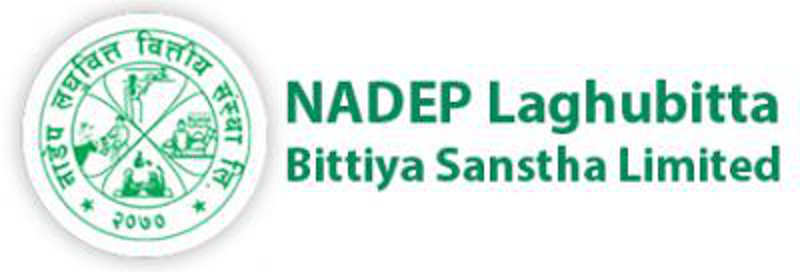Khetan Group Invests in Fonepay: Valuation Reaches NPR 7 Billion
30th July 2025, Kathmandu
Fonepay Service Limited, a pivotal force in Nepal’s digital payment revolution, has achieved a groundbreaking valuation of 7 billion Nepalese rupees following a significant 1.5 billion rupee investment from the renowned Khetan Group.
Khetan Group Invests in Fonepay
This strategic move, which will see the Khetan Group acquire a 20 percent share in Fonepay, marks a pivotal moment for Nepal’s rapidly expanding fintech sector and underscores a burgeoning confidence in the nation’s digital economic future.
The agreement, currently awaiting final approval from Nepal Rastra Bank within the next seven days, is more than a financial transaction. It signifies the Khetan Group’s deep conviction in Fonepay’s established infrastructure, proficient management, and formidable growth potential, promising to open new frontiers of trust and opportunity across Nepal’s financial technology landscape.
Khetan Group Pivots Towards Digital Frontier
Under the visionary leadership of prominent businessman Rajendra Khetan, the Khetan Group is strategically redirecting its focus from traditional industries to embrace the digital economy. This shift follows the group’s divestment of long-held interests in Gorkha Brewery and Carlsberg India, clearly signaling a profound trust in the burgeoning digital domain.
The investment in Fonepay Service Limited is a significant addition to the Khetan Group’s diverse portfolio, which includes holdings in various sectors such as Sunrise Bank, Everest Insurance, Himalayan Syaks, and Noodles. This transaction, facilitated through an international investment fund, is not merely driven by profit but by a long-term strategy to build a robust presence in the digital business sphere. With mobile and online platforms becoming increasingly dominant in daily transactions, the Khetan Group’s proactive stance is poised to accelerate Nepal’s transition towards a cashless economy, potentially providing a new direction for the nation’s digital payment system.
The Khetan Group, a prominent Nepalese conglomerate with a rich 170-year history, has consistently adapted and evolved. Their latest move is a testament to their dynamic approach, balancing established enterprises with the promise of cutting-edge technology.
Fonepay’s Remarkable Growth Trajectory and Global Ambitions
Fonepay Service Limited has demonstrated extraordinary growth and success, showcasing compelling financial achievements. The company’s revenue surged by 63.40 percent in fiscal year 2079/80. Its Earnings Per Share (EPS) witnessed an impressive 9.5-fold increase, from Rs. 3.90 in FY 2079/80 to Rs. 37.19 in FY 2080/81.
Following a temporary loss in FY 2078/79, Fonepay has exhibited remarkable resilience, posting an 83 percent increase in profit over the last two years. Shareholder investment has also grown significantly, from Rs. 42.7 million to Rs. 64.2 million. Notably, financial statements for FY 2079/80 and FY 2080/81 reveal the company has operated without loans, with all investments stemming from shareholder equity.
Unlike other digital payment providers in Nepal that primarily focus on domestic expansion, Fonepay Service Limited is aggressively pursuing cross-border opportunities. The company has successfully launched cross-border payment services with India’s UPI and has forged agreements with South Korea and Sri Lanka. This strategic international focus positions Fonepay as a key player in regional digital payments.
Operational highlights further underscore Fonepay’s impact: on March 20, 2025, Fonepay QR processed over 100,000 transactions in a single day, totaling NPR 2.68 billion. By July 2025, Fonepay is projected to complete over one million UPI cross-border transactions, solidifying its role in connecting Nepal digitally with the world.
Recognizing this rapid expansion, Nepal Rastra Bank has begun issuing directives and licenses to regulate cross-border digital transactions. This regulatory foresight, coupled with Fonepay’s momentum, highlights Nepal’s significant potential in international digital transactions, despite being a landlocked country.
Fonepay, licensed by Nepal’s central bank as its first mobile payment network PSO, serves as an interoperable payment network connecting over 60 partners, 20 million registered customers, and 1.2 million merchants. Its EMV-compliant Fonepay QR is a widely accepted standard, facilitating seamless P2P and P2M payments.
Addressing Digital Disparity Amidst Growth
Despite its rapid advancements, Nepal’s digital payment landscape, including Fonepay, still faces challenges related to digital inequality. While 92 percent of urban residents have access to banking and financial services, this figure drops to 88 percent in rural areas. Similarly, bank account penetration stands at approximately 60 percent in urban areas compared to 50 percent in rural regions.
The widespread adoption of QR code payments in urban areas contrasts with difficulties in remote regions, where lower digital literacy and inadequate internet infrastructure remain significant barriers.
Nonetheless, the overall development of digital technology in Nepal remains highly promising. Nepal Rastra Bank’s FY 2080/81 report indicates that mobile banking users have reached 24.8 million, internet banking users exceed 1.1 million, and interbank money transfer systems like Connect IPS have processed over 75.6 million transactions. QR payments alone have surged by 117 percent year-over-year.
A Future of Cashless Transformation
Market experts predict that Nepal’s digital payment transactions will continue to grow by nearly 30 percent annually in the coming years. As regional ties strengthen and Nepalese citizens increasingly embrace digital services, Fonepay Service Limited is poised not only to lead this growth but also to fundamentally transform digital transactions nationwide. The industry now awaits the crucial approval from Nepal Rastra Bank, which will undoubtedly accelerate Fonepay’s ambitious plans and solidify Nepal’s position as a vibrant digital economy.
About Khetan Group
The Khetan Group is a leading Nepalese conglomerate with a history of over 170 years, boasting a diverse portfolio spanning beverages, foodstuff, insurance, banking/financial services, telecommunications, IT, real estate, mining, and energy. Led by Rajendra Khetan, the group is strategically pivoting towards the digital economy, exemplified by its significant investment in Fonepay Service Limited, marking a new era of growth and innovation.
About Fonepay
Fonepay is Nepal’s pioneering mobile payment network, licensed by Nepal’s central bank as a Payment System Operator (PSO). It provides an interoperable payment network connecting Banking and Financial Institutions, Digital Wallets, Consumers, and Merchants. Fonepay facilitates various Person-to-Person (P2P) and Person-to-Merchant (P2M) payments, as well as other services designed for instant, easy, and convenient money movement. Its network connects over 60 partners with over 20 million registered customers and 1.2 million merchants in Nepal, utilizing EMV-compliant Fonepay QR technology.
IME Khalti Private Limited Vs eSewa: A Competitive Overview of Nepal’s Leading Digital Wallets
IME Khalti Private Limited and eSewa are two of the most prominent digital wallet service providers in Nepal. As the country’s financial ecosystem continues to shift towards digital transactions, both companies have played key roles in promoting a cashless economy. While their core offerings may appear similar, they differ in reach, strategy, ecosystem integration, and business affiliations.
Market Position and Ownership
eSewa, launched in 2009, is Nepal’s first digital wallet and operates under F1Soft International. It enjoys a first-mover advantage and has integrated with more than 50 banks. eSewa is considered the market leader due to its early adoption, wide user base, and strong partnerships.
On the other hand, IME Khalti Private Limited, branded simply as Khalti, entered the market in 2017. It is backed by IME Group, one of Nepal’s largest business conglomerates. Despite being a relatively late entrant, Khalti has managed to secure a strong market presence through aggressive promotions and tech-driven services.
Services and Features
Both wallets offer core services like:
Mobile Top-ups
Utility Bill Payments
Bank Transfers
Online Shopping
Government Revenue Payments
QR Payments
However, eSewa tends to dominate in utility payments, e-commerce, and offline merchant coverage due to its legacy presence. Khalti, in contrast, focuses more on innovative features like movie ticketing, event bookings, and real-time offer campaigns. It also emphasizes usability for youth and startups, often integrating with educational and tech-based platforms.
Ecosystem and Partnerships
eSewa has a wider financial ecosystem and strategic partnerships with banks, insurance companies, and online marketplaces. Its in-house bank transfer system and tie-ins with remittance services provide a competitive edge.
Khalti, under IME’s influence, is integrating digital finance with physical remittance services — a unique blend that targets both urban and rural populations. Its linkage with IME Pay and IME Remit gives it a strong base among migrant worker families.
Innovation and Reach
While both apps continue to innovate, Khalti has been faster in introducing API-based integrations and youth engagement campaigns. eSewa, however, still leads in user trust, corporate adoption, and reliability.
Conclusion
In the IME Khalti vs eSewa rivalry, each holds a strong position. eSewa is the pioneer and volume leader; Khalti is the challenger known for innovation and aggressive market strategy. The competition benefits Nepali consumers by pushing both platforms to offer better digital experiences.
For more: Khetan Group Invests in Fonepay







